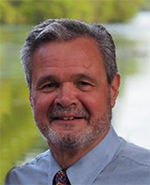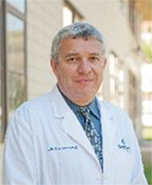Research Day
231 West 124th Street, New York, NY 10027
Harlem Campus, 4th floor
231 West 124th Street, New York, NY 10027
Touro College Research Day is an opportunity to share the wide scope of exciting research projects our faculty and students in the undergraduate, graduate, and professional schools are working on.
Program
11:30am -12:30pm
Luncheon in the cafeteria (4th Floor)
In Lecture Hall 1 (2nd Floor) and Overflow Room Lecture Hall 2 (2nd Floor)
12:45-12:50pm
Opening Remarks on Behalf of the Touro College Research Collaborative
Joseph Indelicato, Ph.D.
Chair, Touro College Research Collaborative
12:50-1:00pm
Welcome
Alan Kadish, M.D.
President, Touro College & University System
1:00-1:15pm
Recognition of Presidential Research Development Grant 2018 Award Recipients & Introduction to Distinguished Speakers
Salomon Amar, D.D.S., Ph.D.
Provost for Biomedical Research/Chief Biomedical Research Officer
Touro College and University System
1:15-2:00pm
Research Day Distinguished Keynote Speaker
 Dr. Shoelson will discuss relevant concepts relating potential roles of obesity in the pathophysiology of type 2 diabetes (T2D) and cardiovascular disease (CVD) prior to describing the clinical trials his team conducted to determine that the world’s oldest anti-inflammatory drug, salicylate, lowers blood glucose in patients with T2D. He then delves into mechanism to show how this occurs. He’ll then show why uric acid is elevated in obesity, and how this affects normal physiology by depleting upstream purine metabolites in liver and adipose tissue. And he’ll show that xanthine oxidase inhibitors including allopurinol restore the depleted purines to affect the same major metabolic pathways targeted by salicylate.
Dr. Shoelson will discuss relevant concepts relating potential roles of obesity in the pathophysiology of type 2 diabetes (T2D) and cardiovascular disease (CVD) prior to describing the clinical trials his team conducted to determine that the world’s oldest anti-inflammatory drug, salicylate, lowers blood glucose in patients with T2D. He then delves into mechanism to show how this occurs. He’ll then show why uric acid is elevated in obesity, and how this affects normal physiology by depleting upstream purine metabolites in liver and adipose tissue. And he’ll show that xanthine oxidase inhibitors including allopurinol restore the depleted purines to affect the same major metabolic pathways targeted by salicylate.
Dr. Shoelson is an internationally recognized leader in diabetes research. He is a Professor of Medicine at Harvard Medical School, and the Helen and Morton Adler Chair, Head of the Section on Pathology and Molecular Pharmacology, and Associate Director of Research at the Joslin Diabetes Center. He received a Ph.D. in chemistry and then his M.D. from the University of Chicago. He then moved to Boston for internship and residency training in Internal Medicine at the Brigham and Women's Hospital. He has been on the faculties at the Joslin and Harvard Medical School since 1988. He has received numerous awards and honors, including a Burroughs Wellcome Fund Scholar Award in Experimental Therapeutics, the Excellence in Diabetes Research Award of the Juvenile Diabetes Research Foundation, a MERIT award from the National Institutes of Health, the Caledonian Prize of the Royal Society of Edinburgh, and the Donald F. Steiner Award for Outstanding Achievement in Diabetes Research. He is well known for studies attempting to pioneer new approaches for treating and preventing type 2 diabetes and cardiovascular disease based on the underlying pathophysiology of these conditions.
2:00-2:30pm
Touro College & University System Distinguished Research Speaker
 “Fructose: a sweet way to make “foie gras” and increase your risk for diabetes and cardiovascular disease” -- There is increasing evidence from both epidemiologic and interventional studies of the deleterious effects of consuming sugar-sweetened beverages and other foods containing fructose and other added sugars. However, the causal effect of sugar has been questioned because most sugar studies have a concomitant excess calorie intake. Recent sugar studies have shown that sugar-sweetened beverages in energy balance also lead to the same deleterious effects. Chronically elevated de novo lipogenesis (DNL) during both fasting and feeding may be a key mechanism in the link between consumption of added sugar and metabolic abnormalities, including obesity, high lipid levels, cardiovascular disease, NAFLD, insulin resistance, and type 2 diabetes.
“Fructose: a sweet way to make “foie gras” and increase your risk for diabetes and cardiovascular disease” -- There is increasing evidence from both epidemiologic and interventional studies of the deleterious effects of consuming sugar-sweetened beverages and other foods containing fructose and other added sugars. However, the causal effect of sugar has been questioned because most sugar studies have a concomitant excess calorie intake. Recent sugar studies have shown that sugar-sweetened beverages in energy balance also lead to the same deleterious effects. Chronically elevated de novo lipogenesis (DNL) during both fasting and feeding may be a key mechanism in the link between consumption of added sugar and metabolic abnormalities, including obesity, high lipid levels, cardiovascular disease, NAFLD, insulin resistance, and type 2 diabetes.
Dr. Schwarz graduated from Lausanne University Switzerland. He is professor of Biochemistry in the College of Osteopathic Medicine and Director of the Metabolic Research Center, Touro University California and adjunct professor of medicine at the University of California San Francisco. For the past 25 years, he has performed NIH-funded translational research. His main interest is in glucose and lipid metabolism as intermediate processes in the development of chronic diseases, with a special focus on mechanistic studies to evaluate the effect of nutritional and lifestyle intervention. His expertise is the use of stable isotope tracer methodology applied to clinical translational research.
2:30-2:45pm
Question and Answer Session
2:45-3:00pm
Break
3:00-3:30pm
First Poster Session (2nd Floor)
3:45-4:15pm
Second Poster Session (4th Floor)
Corporate Sponsors


The Touro College Research Collaborative for the past several years has organized Research Day with support from the academic leadership of the College and the President's Office. A faculty volunteer group, the Research Collaborative arose initially from a membership of dedicated scholars who pursue research in the medical and health sciences fields at the College. Research Day was developed as part of an endeavor to foster collaborations and provide a forum to highlight the many research activities that take place within our community. Building year by year upon success and increasing interest, the Collaborative has now expanded to be more broadly inclusive and has widened its reach to include interested researchers from throughout the College.
